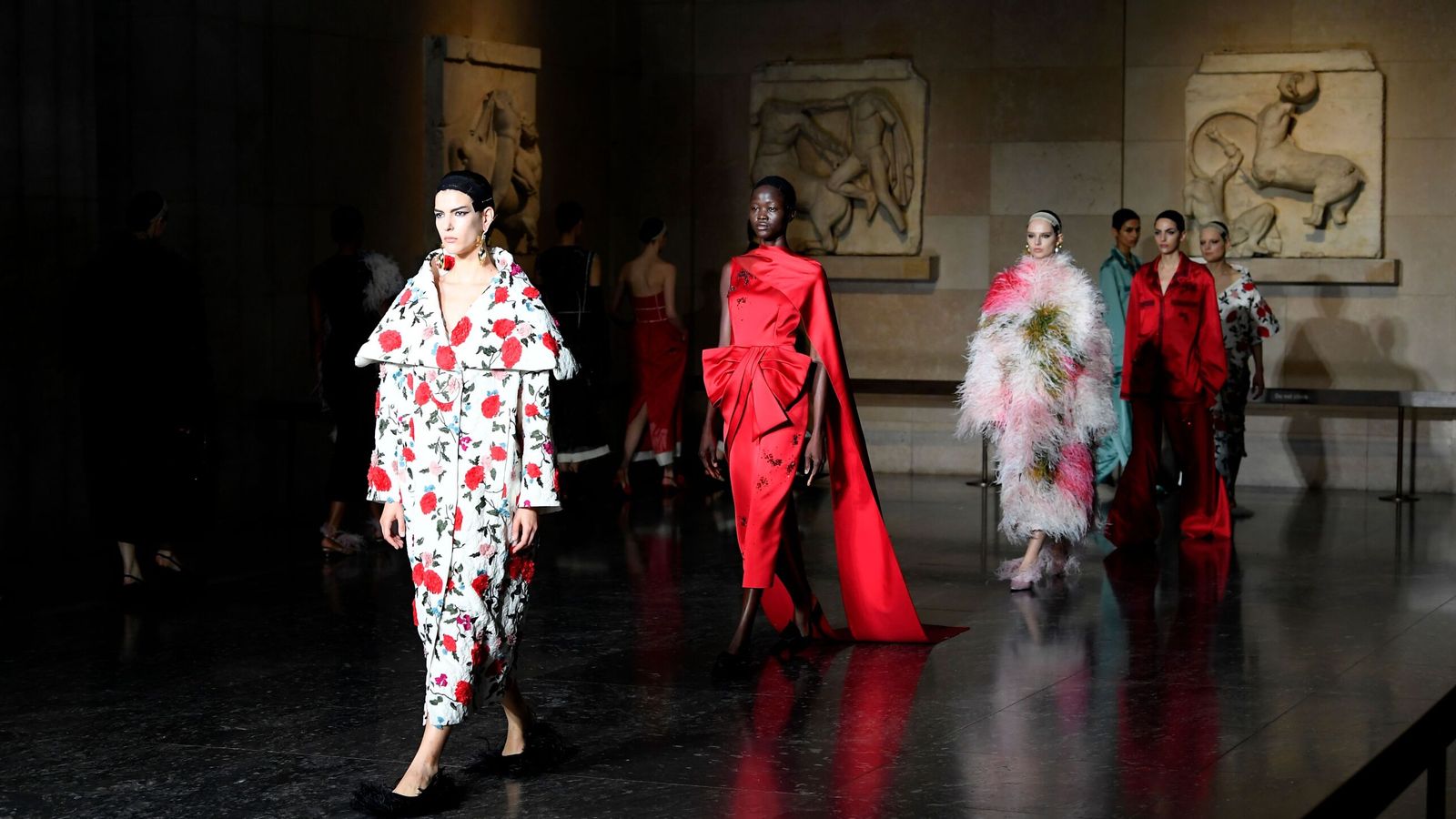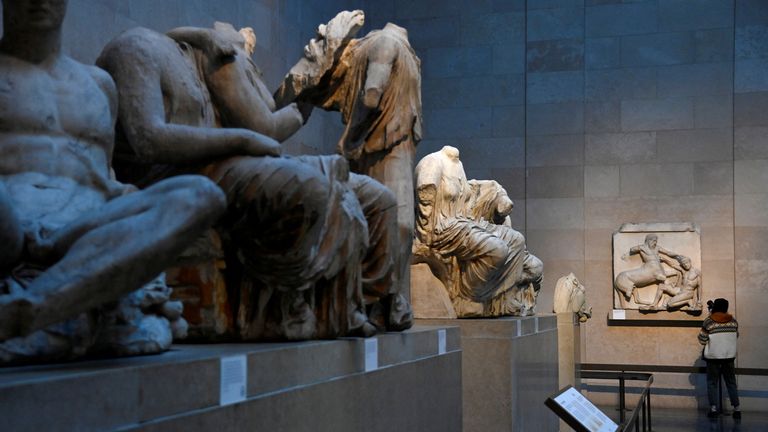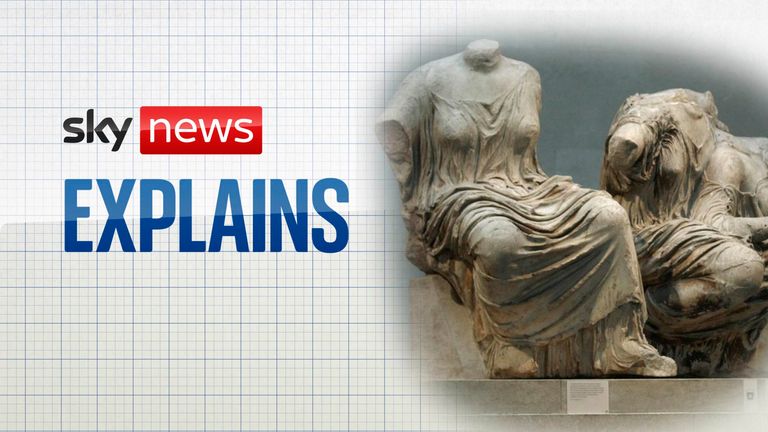A London Fashion Week show held in the same room as the Elgin Marbles in the British Museum has sparked anger from the Greek government.
It comes after British designer Erdem Moralioglu showcased his autumn and winter collection at the London site’s Duveen Gallery over the weekend.
Vogue magazine described the show, which was held in front of an audience, as a tribute to the “greatness” of American-born Greek opera singer Maria Callas. Models were seen wearing items including satin dresses, a pea-green coat and slingback shoes with roses attached.
However, Greece‘s minister for culture, Lina Mendoni, condemned the show and said it “belittled” the contested sculptures, which are also known as the Parthenon Marbles.
She said the 2,500-year-old artefacts, which were taken from Athens to Britain in the early 19th century, had been disrespected and used as “simple decorative elements”.
Read more: What are the Elgin Marbles and how did they end up in the British Museum?
Ms Mendoni added: “The sculptures were used as a backdrop, which belittles their universal value.
“Let us remember that there are cases where the sculptures in the Duveen Gallery have been damaged, due to overcrowding and carelessness of visitors.”
The sculptures, which were mostly created by artist and architect Phidias, were originally part of a frieze that decorated the ancient Parthenon temple at the Acropolis in the Greek capital.
Ms Mendoni also said the show bore no relationship to “the values that the Phidian works transmit and symbolise”.
The British Museum told Sky News it was “not officially commenting” on the row.
However, a spokesperson said the site operated as a commercial venue outside of opening hours and often hosted events such as London Fashion Week shows.
They said respecting the museum’s collections was “a paramount concern,” and added: “We also think it important that artists can continue to respond to the living legacy that the Parthenon Sculptures represent.”
It is not the first time that ancient Greek artefacts have been used as a fashionable backdrop.
A Dior photoshoot was held at the Acropolis in 2021, recreating images taken at the site by the French fashion designer in 1951.
However, the Greek government said there was no comparison because 2021 Dior collection had been “inspired by Greek antiquity”.
Ms Mendoni added that the photoshoot also took place “while the Acropolis was closed, with a limited number of models, without any audience and only with the presence of the security staff and the archaeologists in charge.”
Read more:
British Museum: ‘Close to 2,000’ artefacts worth millions stolen
Hundreds of items missing from English museums
Why the controversy?
The artefacts, which are seen as symbols of freedom in Greece, have been a subject of controversy ever since they arrived in Britain in the early 19th century.
They were removed from Greece by Lord Elgin in the early 19th century when he was the British ambassador to the Ottoman Empire.
Athens has long demanded the return of the historic works, with actress, and then Greek minister for culture, Melina Mercouri launching a high-profile campaign to secure their return in the early 1980s.
In 2015, Greece ruled out taking any legal action against the UK but diplomatic efforts and talks have continued in recent years, including over the possibility of the sculptures being temporarily loaned to Athens.
But relations hit a low in November when Prime Minister Rishi Sunak cancelled a meeting with his Greek counterpart amid a deepening row over the issue.



